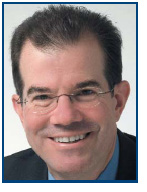ACTE tackles avian influenza threat
 The threat of an avian influenza pandemic is receiving the highest priority by the Association of Corporate Travel Executives (ACTE), which led to a meeting between the group’s Airborne Contagion Task Force and a special consultant to the Center for Disease Control (CDC) yesterday.
The threat of an avian influenza pandemic is receiving the highest priority by the Association of Corporate Travel Executives (ACTE), which led to a meeting between the group’s Airborne Contagion Task Force and a special consultant to the Center for Disease Control (CDC) yesterday.
“The business travel industry’s response to an avian influenza pandemic has to match the scope of the threat,” said ACTE President Greeley Koch. “But the cost of anything less is unthinkable. Now is the time to plan and prepare, before regional outbreaks become global.”
Gearing up to deal with a pandemic, which may or may not occur, comes with a significant cost, and the price of this effort will be high. Yet the effort would still be invaluable in dealing with other disasters or outbreaks.
The meeting’s objective was to confirm the nature of the threat and to identify the areas in which the business travel industry could move forward in pandemic preparation. Awareness of the disease’s progress and the efforts to contain and treat it are now especially significant.
“There is lot of confusion and unanswered questions regarding avian influenza,” said task force chair and former ACTE President Mark Williams. “We want to eliminate panic by dispelling the misconceptions and provide the industry with reliable information.” ACTE’s website will begin listing the most credible links to health and travel advisories, plus other available resources. The task force will monitor the activities of the CDC and the World Health Organization (WHO) and report accordingly.
One issue of concern may span the privacy domain. Privacy laws in the United States and Europe prohibit airlines from tracking and releasing seating manifests, and emergency contact numbers. This makes it impossible for agencies like the CDC to easily alert travelers who may have been exposed to illness by a passenger sitting in an adjacent seat. “Most people believe that government health organization already have this capability,” said Koch. “We’re now in the process of polling our members to gauge industry reaction to giving health organizations this authority.”
ADVERTISEMENT
Some corporations are already going forward with advanced pandemic plans. These include determining when to bring foreign-based executives home and when to limit travel to countries where the disease is making progress. Concern was expressed that corporations trying to stockpile antibiotics may run the risk of having their supplies diverted by local authorities. It is likely the avian influenza pandemic issue will be a special focus of ACTE’s global conference in London (Oct. 23 - 25, 2005).
——-

